A blog for the discussion and dissection of my favourite movies with some other bits in between.
Last active 3 hours ago
Don't wanna be here? Send us removal request.
Text
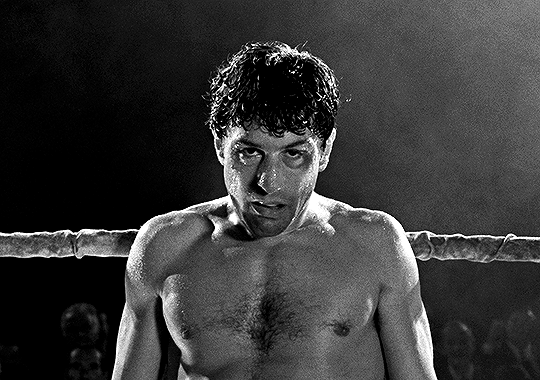





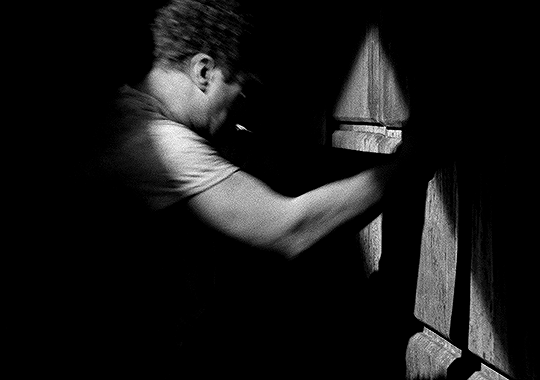
I ain't never gonna get a chance to fight the best there is. And you know somethin'? I'm better than him. I ain't never gonna get a chance.
Raging Bull (1980) dir. Martin Scorsese
626 notes
·
View notes
Text
"We all need a partner." - Human Connection in the Worlds of Wong Kar-Wai
Wong Kar-Wai is a film maker known for his distinct visual style, dreamy soundtracks, saturated worlds and sparse storytelling. While all of his films share this unique aesthetic his choice of stories remains eclectic. Included in his ouevre are small-time gangster flicks (As Tears Go By, Fallen Angels), the fallout of a relationship between two men (Happy Together), the budding relationship between two neighbours (In the Mood for Love), martial arts period dramas (Ashes of Time, The Grandmaster), a man's desperate search for his birth mother (Days of Being Wild), and a contempory romance (Chungking Express). Indeed, it is difficult to summarise his films in one short sentence; they are these things, but so much more. Wong's films are made up of moments, shot in stylistic fashion and eclectic order. In an individual movie storylines may not be connected but share thematic similarities. What ends up connecting these films then, the characters and the events of their lives, is a desire for connection, felt deeply and passionately yet often missed out on or actively avoided. Wong manages every time to grip audiences in his clutches, compelling them along these mundane journeys as the yearning of his characters to be with someone, to love and be loved, yet often rejecting the love they receive, becomes our own.

Like many successful directors, Wong Kar-Wai is fond of bringing back the actors he has worked with in the past, often to play characters they've previously portrayed if only for a moment's screentime. Such is the case with his loose trilogy of dramas made up of Days of Being Wild, In the Mood for Love, and 2046. While 2046 is a direct sequel to In the Mood for Love (and a more indirect sequel to Days of Being Wild), links between the three films are tenuous and crafted with mere hints and nods. Tony Leung appears in a silent, almost inexplicable scene at the end of Days of Being Wild (only explicable when you've seen In the Mood for Love) while Maggie Cheung appears as a fleeting memory in 2046. To me, what connects these three films is their rejection of romantic love; while so many of Wong Kar-Wai's characters search for love, there are as many that find it and say no.
In Days of Being Wild, the main character, Yuddy, forms a relationship with two women who he inevitably breaks up with when they grow too close to him. The first with Su Li-Zhen he ends suddenly and agressively when she suggests they live together. He leaves his next girlfriend, Lulu, without telling her that he's leaving for the Philippines in search of his birth mother. Yuddy's identity is tied into finding this woman, thus his rejection of Su Li-Zhen and Lulu: there is an emptiness shaped by his mother and neither of these women fill it satisfactorily. In a tragic turn of events, when he finally finds his mother she refuses even to see him and Yuddy is forced to continue on with this emptiness inside him and experiencing the rejection he administers so freely. The final person he meets is Tide, a cop turned marine, who we previously saw offering comfort and advice to the heart-broken Su Li-Zhen. As a man, Tide is not subjected to the same treatment by Yuddy as Su Li-Zhen and Lulu were; Yuddy can interact with Tide without worrying about having to give something of himself in return, while Tide can offer comfort and advice without being expected to fill the mother-shaped hole in the other man's life. During his final moments, he asks Tide to tell Su Li-Zhen that he forgot about her, "When you see her again, tell her I remember nothing. It's better that way for all of us." Yuddy wants no responsibility for the hurt he's caused. As romantic love is low in his estimation, he expects it to be as easy for everyone else to forget. Seconds later, Yuddy is gone, having cut off every emotional tie in his life and denied the only connection he really wanted.

"I thought we wouldn't be like them, but I was wrong." Although In the Mood for Love also depicts a denial of love, here it is a decision made by both parties. Chow Mo-Wan and Su Li-Zhen are neighbours whose spouses are cheating on them and although they commiserate and lean on each other for support, they adamantly refuse to pursue a romantic relationship, desiring to be "better" than their spouses. However, as their friendship blossoms, the film encourages viewers to root for Chow and Su with its provocative soundtrack, heady lighting and lustful, rose-tinted colour palatte, their clandestine glances and near-constant close proximity to each other, framed in narrow alleys and hallways, or cramped together in the back of a taxi or one of their small rooms. The very fact that they don't act on their feelings raises them in our estimation as decent people, while also making us want them to be with each other more; we want characters we like to experience the things that they want. Wong Kar-Wai knows how to make his characters yearn for each other and here he skillfully makes the audience yearn for them too. Yet, he does not allow them a conventionally happy ending. Instead their story ends with a series of missed opportunities and the continued denial of their happiness. There is a maturity to In the Mood for Love that contributes to the characters' decision to remain friends; instead of impulsively acting on their feelings Chow and Su restrain themselves so as not to emulate an act that hurt them so much through their spouses - as Chow says in his confession to Su: "You won't leave your husband. So I'd rather go away."

While the ending of In the Mood for Love would lead us to believe that Mr. Chow has left his love behind him, 2046 shows us that it's not as simple as turning your back and walking away. Here, Chow Mo-Wan returns to us a different man than the one we met in In the Mood for Love, one who is more cynical in his pursuit of love and keeps a distance between himself and his partners through a series of fleeting arrangements. In Lulu, the first woman we see Chow interact with, we find a forewarning for the life Chow could lead if he doesn't learn to move past Su Li-Zhen. Lulu, the same character from Days of Being Wild, has not since recovered from her experience with Yuddy as evidenced by Chow's re-telling of their previous meeting, "You talked a lot about your late boyfriend…You said he was the love of your life." Lulu is still grieving the loss of Yuddy, and does not get the opportunity to learn and move on from him, as Chow eventually will, as she is soon killed by a jealous boyfriend. The shadow of Su Li-Zhen stagnates any potential relationship Chow could develop with the women in his life as he holds them up to her memory, "I never dreamed I'd meet another Su Li-Zhen." When feelings develop in him or in the women he meets, they are ultimately rejected by the receiver. So it is with Bai Ling, who initially rolls with the punches of their affair until she develops feelings for Chow only for him to turn her away. Chow, in turn, is rejected by another Su Li-Zhen who believes she will only ever be a replacement for the original. Chow's relationship with Bai Ling was almost purely sexual, the opposite of his experiences with both Su Li-Zhens, and as such it's likely he never considered her as a serious option for his future. With the other Su Li-Zhen, a distance was maintained between them while she helped him repay his gambling debts; they worked together and maintained a platonic relationship while feelings mounted between them - a replica of the relationship in In the Mood for Love and likely building his feelings even more. Had Chow not told the new Su Li-Zhen about the original, something might have happened between them, but Su recognised his stagnant feelings and wisely chose to protect herself from heartbreak. In a similar vein, Chow falls for Wang Jing-Wen, the daughter of the hotel owner. Chow grows close to Wang Jing-Wen when he helps her send secret letters to her Japanese boyfriend and she helps him with his novel, another thread reminiscent of In the Mood for Love and a period Chow refers to as the happiest in his life since that last collaboration. Like both Su Li-Zhens their relationship is initially platonic but Chow falls for her the more time they spend together. However, Wang Jing-Wen is committed to her boyfriend and doesn't notice his attentions. Like Yuddy, Chow sees these new women as potential fillers for the hole in his life and in an unusual displays of emotional sagacity (for Wong Kar-Wai characters, anyway) neither women pursue an inevitably futile relationship with him, leaving Chow to navigate his journey alone. It is even possible that these interactions have rubbed off on Mr. Chow as he afterwards makes more considerate choices in his relationship with Bai Ling. After writing his novel, Chow reflects on his behaviour with the second Su Li-Zhen, how he wanted her to be his old love instead of letting her be a new one. In the final scene, Chow and Bai Ling reunite but he rejects her invitation to spend the night with her. When she asks why it can't be like it was before, Chow simply says that it's something he can't do. Although 2046 leaves the viewers with a margin of hope for Chow - who is no longer willing to live in an unchanging world, stringing people along and hurting himself and others - it looks as if the cycle of heartbreak will continue in Bai Ling, until she learns how to move on, or, like Lulu, remains stagnant.

In contrast to these three films, others in Wong Kar-Wai's canon depict a desperate, almost adamant, desire for love and connection regardless of where it comes from. Chungking Express and Fallen Angels are connected in their anthological story-telling style and depiction of Hong Kong street life, while Happy Together takes a sharp turn to the airport and flies to Argentina to portray the deep, if problematic, connection between two former lovers. The common denominator is the loneliness of the characters and their desperation for connection even if it is with the wrong person.
"We're all unlucky in love sometimes." In the first of Chungking Express' two storylines, Cop 223 spends his free time trying to get into contact with his ex-girlfriend. Like many Wong Kar-Wai characters he is heartbroken, hung up on the past and looking to fill a void. Cop 223 is a character obsessed with timing - "Somehow everything comes with an expiry date" - and his is poorer than most. After his girlfriend broke up with him on April Fool's Day, he lives under a deadline until May 1st, his birthday, when he will finally give up on her coming back, "We split up on April Fool's Day, so I decided to let the joke run for a month." The night before his birthday he bumps into a gangster known only as "the woman in the blonde wig", his attempts at flirting fail, but he ends up taking her home anyway where she passes out from exhaustion. Cop 223 then spends the entire night in her hotel room while she sleeps, watching TV and ordering room service, desperate to develop a connection with someone that he stays up in this woman's hotel room the entire night on the off-chance it might be her. He leaves the next morning, his bithday, giving up on his girlfriend and the woman. However, to his surprise, he receives a birthday message from her and vows that, "For this, I'll remember her all my life." The woman in the blonde wig may not have been the right woman for Cop 223 to fall in love with that night, but their brief connection is enough to give him hope and encourage him to move on. Unfortunately, the next woman he tries to flirt with - Faye - falls in love with someone else, "Six hours later, she fell in love with another man." So, Cop 223's cycle of bad luck with women continues, but so does his determination.
Like Cop 223, Cop 663 is hung up on his ex-girlfriend and remains morosely unaware of the interest shown by Faye, a new employee at the snack counter he frequents on his lunch break. Here, both characters are looking for love in places where it cannot be found. When Cop 663 leaves a key to his apartment in the care of the snack bar, Faye begins sneaking in when he's not there, tidying his apartment, replacing some of his items and redecorating. When Cop 663 eventully realises that Faye is in love with him he asks her out on a date she doesn't show up for. Instead, Faye decides to take a break from her one-sided infatuation and pursue her dream of traveling to America - but doesn't give up on him. She leaves behind a message for Cop 663, a boarding pass drawn onto a napkin dated a year later. On this day, Faye returns to the snack bar to find that Cop 663 has bought it and wants to turn it into a restaurant. He produces the napkin he has kept all this time, the destination blurred after being caught in the rain. Faye begins to write him a new one and asks where he'd like to go: "Wherever you want to take me." Of all the relationships discussed, Faye's and Cop 663's is the most promising, but they had to grow to reach this point. When they first meet, Cop 663 is so fixated on his ex-girlfriend that not only does he not notice Faye's feelings, he barely notices the changes in his apartment. At this time, Cop 663 is not ready for Faye but when they arrange a date anyway, her rejection of him wakes him up out of his stupor and encourages him to change. Their year apart from each other allows them to grow and change, so when Faye returns, their interest in each other is more even and the possibility of a relationship between them is heightened.

In Fallen Angels we meet Wong Chi-Ming, a gangster partnered with a woman he has never met in person, referred to only as the Killer's Agent. Each time Wong Chi-Ming finishes a job the agent goes to his hideout to clean up after him. By going through his rubbish she feels she has come to know him better than anyone, but it is a connection she is forced to fabricate by taking home his rubbish, going to a bar she knows he likes and even masturbating on his bed, while Wong Chi-Ming is too afraid to meet this woman who understands him more than he'd like. When he decides to quit his job, instead of meeting her face to face, he leaves her a coded message he knows she will understand, "Being partners, you get to understand each other. Almost able to read each other's minds. I'd often leave her some clues to trace my actions or my whereabouts. After all these years, she's become part of my life." In the middle is Punkie, an unabashedly erratic woman whose behaviour is designed to make her memorable. Unfortunately, the only person she cares about impressing, Wong Chi-Ming, has forgotten her once before, "You like me now. That's fine." Wong Chi-Ming's problem is not lonliness - he actively cuts all ties with the people in his life - but Wong Chi-Ming is not the one looking for a connection, he is the object of pursuit. Both the agent and Punkie look to Wong Chi-Ming for something he is unwilling to provide and both are so desperate for this connection that they are content with the measly relationship they've managed to fabricate with him.
Another character desperate for connection is He Zhiwu, a recently escaped convict who falls in love with Charlie, a nutcase out for revenge against her ex-boyfriend's fiancé. A mute since childhood, He Zhiwu admits that he has "very few friends". In his desire to connect with people (and have something to do) he opens other peoples' businesses at night and harasses potential customers by shoving produce in their faces and often knocking them to the ground. In an effort to make himself understood, He Zhiwu is physical with people but is always pushed away. When he meets Charlie she latches onto him, literally using him as a shoulder to cry on, and is just as physical as he is as she drags him around Hong Kong in her attempts to get back at her ex. The fact that she doesn't push him away encourages He Zhiwu's feelings, though Charlie clearly doesn't feel for him in return. After she stands him up one night, He Zhiwu puts her behind him and throws himself into a real job and his relationship with his father - the strongest one in the movie - however, when his father passes away, He Zhiwu returns to his old delinquent ways, devoid of another person to keep him grounded. Around this time, he bumps into Charlie again and tries to get her attention but she has cleaned herself up and ignores him completely while she waits for her new boyfriend. Later on, downtrodden and beaten up by gangsters, He Zhiwu spots the Killer's Agent in a restaurant, a woman he has seen before but never thought to engage with, "I knew we'd never be friends or confidants. We'd let too many chances pass us by," but this tme she asks him for a lift home. Once again, Wong provides that strand of hope; in this moment they are both broken-hearted and lonely and although both are sceptical about the future of this relationship, for one night, at least they find comfort and solace in each other, "The road wasn't that long, and I knew I'd be getting off soon. But at that moment I felt such warmth." Again, we see our characters pursuing the wrong people until they get to an emotional point where they can look for the right ones.

"We could start over." These are the words repeated by Ho Po-Wing each time he wants to get back together with Lai Yiu-Fai in Happy Together. Although, Lai Yiu-Fai knows better than to continue this relationship, he and Ho Po-wing are too deep in each others' emotional pockets to truly separate. On a failed trip to Argentina in an effort to rekindle their relationship, the two men become invariably linked - by their history, their lack of money and their isolation in a foreign country. They are forced to live together in a tiny apartment while Ho Po-Wing recovers from a beating and Lai Yiu-Fai tries to earn enough money to return to Hong Kong. What follows is a long-drawn-out power struggle between two people who are unafraid to manipulate and control each other since they've seen and done it all before. While Ho initially appears to be the insitigator of their toxicity, we soon learn that Lai is no angel after he steals Ho's passport taking away his ability to leave. In their literal isolation in a foreign country both men latch on to the familiarity of their ex-partners and like the characters in Fallen Angels they desperately cling to even the most tattered thread of connection so as not to be left absolutely alone. That is, until Lai Yiu-Fai meets Chang, a young back-packer working in the same restaurant as Lai to supplement his trip. Chang grounds Lai, bringing relief, companionship and sanity to his current life and obliviously helps Lai step back and review his recent behaviour. Happy Together does not give its viewers a conventionally satisfying ending but it does offer hope in Chang; not that he will become Lai's partner (his sexuality is never discussed), but that, after meeting and learning from Chang, Lai will move on from Ho and, this time, not turn back. Chang is travelling to the southernmost point of South America to visit a lighthouse where, he has heard, a person can leave their sadness behind before going home. Chang's optimism, his carefree ability to weave in and out of environments, adapting as needs be, is the antithesis of Lai and his situation with Ho and the catalyst for Lai finally leaving Ho and returning to Hong Kong. On his way home, Lai visits Iguazú Falls, the destination of an unsuccessful road trip at the beginning of the film, "I felt very sad. I always thought there should be two of us standing here." After finally seeing the very thing they traveled to Argentina to see, Lai can leave Ho and all of their sadness behind him.

"Love is all a matter of timing. It's no good meeting the right person too soon or too late. If I'd lived in another time or place… my story might have had a very different ending." These are only some of the recurring themes that appear in Wong Kar-Wai's films and none are the definitive concept behind a particular movie. Across each of these films a desire is kindled in the viewer for these characters to "end up" with someone, often despite knowing better. It is their happiness we really want and it is something we rarely get. Wong's characters are constantly being pulled in different directions by neccesity and desire and these are themes and emotions that the director has been using and developing on since the beginning of his career. Even his martial arts films, Ashes of Time and The Grandmaster are, at heart, stories of love and longing, unrequited and forbidden. As Tears Go By, his first and most conventional film, depicts this struggle in Wah, another small-time gangster trying to leave the life behind. Wah attempts to leave his criminal life after meeting and falling in love with Ngor; he even leaves the city to be with her, but is shot when he returns to Hong Kong to help his "little brother" out of a tight spot. Even before this tragic ending could split them apart, Ngor had subtly let him go knowing he will always follow the call back to Hong Kong, both choosing necessity over desire - but they had to try. For these characters, the pursuit of connection is almost more important than the result - it is a way out, a chance for a different life; for Chow to forget his love for Su, for Yuddy to reconnect with his birth mother, for Cop 223 to get over his ex. Even when they don't want to be tied down, know they are with the wrong person or desperately want someone they can never have, it is this yearning for connection that keeps them going and eases their broken hearts. In their lives, connection is a matter of survival or, sometimes, of simply getting through the night.

#wong kar wai#days of being wild#in the mood for love#2046#chungking express#fallen angels#happy together#the grandmaster#ashes of time#as tears go by#leslie cheung#tony leung#maggie cheung#andy lau#faye wong#ziyi zhang#takeshi kaneshiro#leon lai#michelle reis#charlie yeung#brigitte lin#gong li#carina lau#essays#film analysis#movie analysis#this was just a game of how many pictures of tony leung can i fit into a post
11 notes
·
View notes
Text
















"People like us don't have tomorrows."
As Tears Go By (1988) dir. Wong Kar-Wai
#as tears go by#as tears go by 1988#wong kar wai#andy lau#maggie cheung#jacky cheung#bits#name a more attractive movie couple than andy lau and maggie cheung#i dare you
9 notes
·
View notes
Text
Review: God's Own Country - Nowt As Queer As Folk

Title: God's Own Country Directed by: Frances Lee Written by: Francis Lee Cast: Josh O'Connor, Alec Secareanu, Gemma Jones, Ian Hart Director of Photography: Joshua James Richards Year: 2017
The atmosphere of God's Own Country is brilliantly informed by its landscape. Its lead, Johnny, is isolated, stark, cold and gruff in his interactions with people, but opposite him is seasonal worker, Gheorghe, who, through his calm, methodical actions, reminds Johnny of the beauty that can be found in their mountains and the gentleness that can live alongside the roughness of rural farm life.
Johnny is not entirely unjustified in his attitude. Farming requires hard work under normal circumstances, but he is shouldering the farm's responsibilities on his own - before Gheorghe arrives his only companions are his elderly grandmother, who is now only able for domestic work, and his ill father who is not able for work of any kind. As well this, Johnny lives under the scrutiny of his father and grandmother and their unfair criticisms of his inability to be in two places at once. His only outlets from this life are drinking in the local pub at night and fleeting sexual encounters. When we meet him, Johnny is a mess, but his fading care for the farm is understandable. When his father and grandmother hire Gheorghe to help with the lambing, Johnny is initially dismissive of him - and often racist - but finds himself captivated by the other man. When they first have sex, it is a battle in the muck between Johnny's usual functional, unemotional methods and Gheorghe's desire for something slower and easier. Their interactions thereafter - sexual and otherwise - display the same callousness from Johnny and determined gentleness from Gheorghe until Johnny eventually comes around to Gheorghe's way of living and begins to envision a life where he can continue working on the farm and be happy.
God's Own Country highlights the beauty that can be found in a bleak, stark landscape and while it is tough, it never dwells in misery. It is refreshing in its depiction of Johnny's issues with his family as they don't stem from his sexual identity but rather his anger and behaviour - when his grandmother finds a used condom in his room she is only concerned that Johnny is going to let his relationship with Ghoerghe affect his work and when Johnny convinces his father that for the farm to survive changes will have to be made, it is understood by both men that Gheorghe is part of those changes. In this, as well, God's Own Country is refreshing, because in spite of its rural lonliness and its main character's emotional stagnation, it allows Johnny and Gheorghe a happy ending.
#god's own country#francis lee#josh o'connor#alec secareanu#gemma jones#ian hart#movie review#film review#reviews
5 notes
·
View notes
Text

















“I don't want to be just theoretically gay. I want to do something about it.”
Beginners (2010) dir. Mike Mills
9 notes
·
View notes
Text








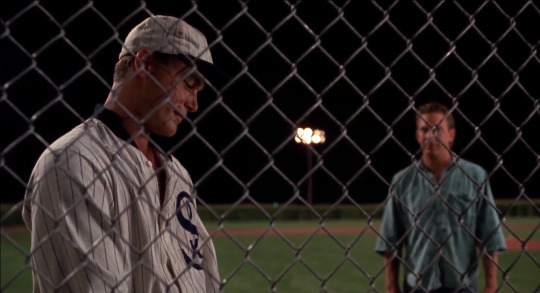



"I'm thirty-six years old, I love my family, I love baseball, and I'm about to become a farmer. And until I heard the Voice, I'd never done a crazy thing in my whole life."
Field of Dreams (1989) dir. Phil Alden Robinson
#field of dreams#phil alden robinson#kevin costner#amy madigan#james earl jones#ray liotta#burt lancaster#gaby hoffman#bits#favourites
10 notes
·
View notes
Photo
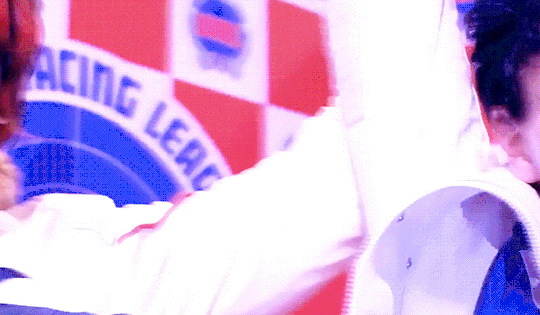





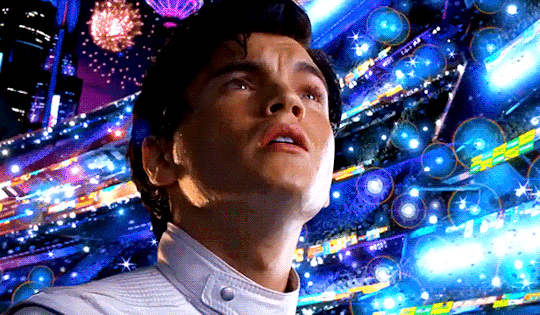
Hey, all I was doin’ was saving your ass.
183 notes
·
View notes
Text

10 notes
·
View notes
Text
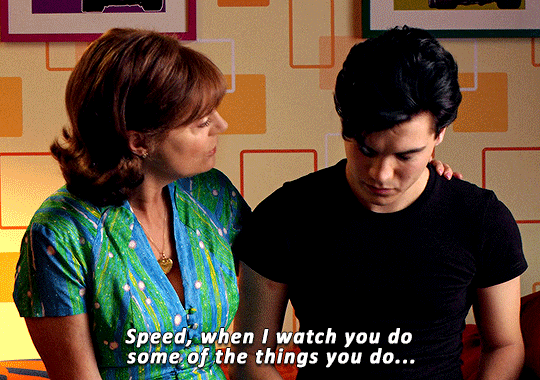
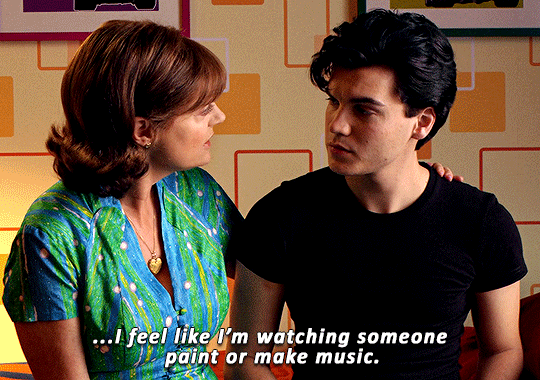
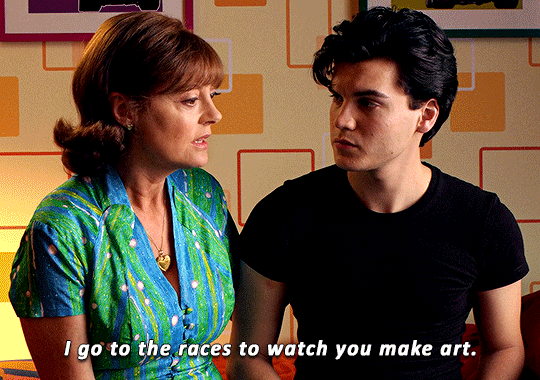
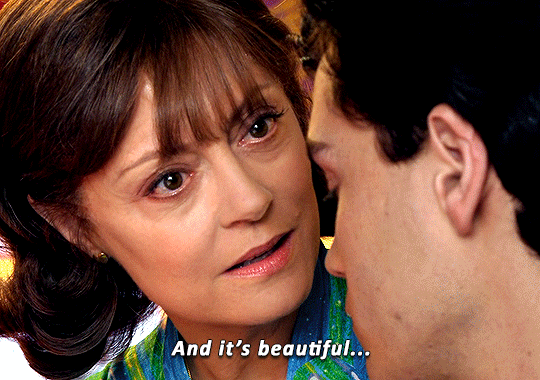
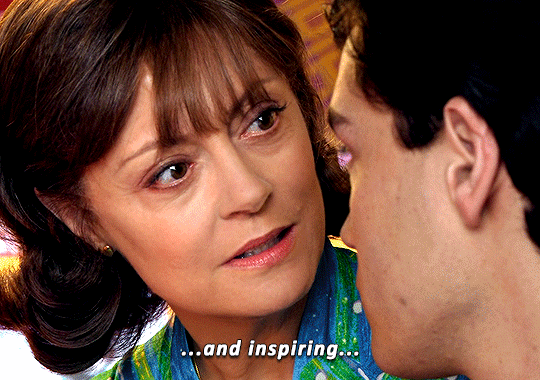
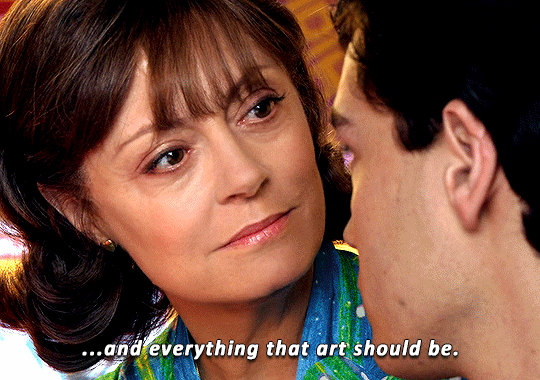
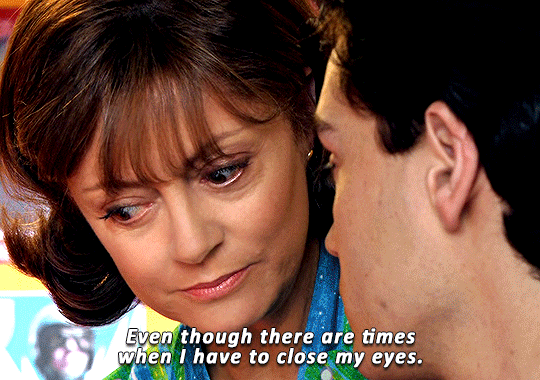
Speed Racer 2008, dir. Lana Wachowski, Lilly Wachowski
#told you#speed racer#speed racer 2008#lana wachowski#lilly wachowski#bits#favourites#susan sarandon#emile hirsch
306 notes
·
View notes
Text
Review: Speed Racer - Beautiful, Inspiring and Everything That Art Should Be
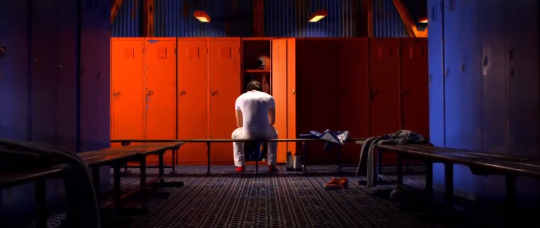
Title: Speed Racer Directed by: Lilly and Lana Wachowski Written by: Lilly and Lana Wachowski Cast: Emile Hirsch, John Goodman, Susan Sarandon, Roger Allam, Christina Ricci, Matthew Fox Production Design by: Owen Paterson Set Decoration by: Peter Walpole Costumes by: Kym Barrett Year: 2008
"Speed, when I watch you do some of the things you do, I feel like I'm watching someone paint or make music."
There was a lot working against Speed Racer before I started watching it. It was late and the film is long and action-heavy, I have never seen an episode of the anime that it's based on, and I really had no idea of what I was about to get into narratively and visually.
And holy moses did I have a great time.
While the film's CGI and intense visual aesthetic was, admittedly, a shock to the system at first and took some getting used to, there was one moment in the very beginning of the film that convinced me to settle in. Speed Racer opens with a flashback, as an older Speed, getting ready before a big race, remembers a day spent driving with his older brother Rex. This brilliant sequence begins with a young Speed barely sitting in his chair at school as he daydreams of racing in his own car. This is the moment that locked me into Speed Racer. Surrounded by childish, cartoonish drawings this moment captures exactly what it is to be a kid daydreaming of big adventures. Two minutes into Speed Racer and I'm already tearing up.
Following this is a high octane sequence that involves the older Speed driving in both a real race and a phantom one with the memory of Rex, cementing in our minds the importance the family dynamic is going to have throughout the film - Speed slows down before he can beat Rex's record, preserving his brother's memory more important to him than personal glory. Between the thrilling visual effects, the solid humour and crazy (in the best way) action, the relationship between the two brothers and the entire Racer clan acts as a touchstone to keep us grounded. Because it's not for glory that Speed's family cheer him on, but the thrill of watching him race. There is a wonderful simplicity in the Racer family's love of racing. They want Speed to win and be the best driver he can be, but their enthusiasm is rooted in love of the sport that connects them all, not a desire to climb to the top. Speed enjoys winning that race in the beginning of the movie, but he only wants to win so that he can keep racing. Then we see that in times of strife, Speed connects to his parents through their love of racing: watching an old race drags Pops out of the mire he was in after Rex's death and Mom reminds him about the heart of racing, when the corruption of it clouds his eyes: "I go to the races to watch you make art. And it's beautiful and inspiring and everything that art should be."
Sport as art is always an apt connection, especially here given that so much of the film is about maintaining integrity in an industry that wants you to do anything but. Speed Racer's villain is Arnold Royalton, a charismatic tycoon who wants Speed to race for his company, but who then dashes all of Speed's bright-eyed dreams when he refuses. Speed's main antagonist then becomes not other racers but the corruption inherent in the sport he loves: "It doesn't matter if racing never changes. What matters is if we let racing change us."
I understand why Speed Racer was over-looked in its time. Its tone and visual aesthetic are like nothing that came before and it's bright, kitschy colour scheme and energy are the opposite of what made the Wachowskis famous with The Matrix. It is, essentially, a live-action cartoon, with cartoon Vikings and cartoon gangsters and cartoon ninjas all played by real people, and scenes with its youngest character stray too far into grating silliness, degrading the balance of humour and heart that is handled so deftly for the rest of the film. But it is a testament to the sincerity of its cast and crew that Speed Racer has stood the test of time. Yes, it's crazy and cars go vroom and sometimes jump in the air, but they belong to a sport that revitalised a grieving father and brought him closer to his son. Yes, it's cartoonish, but in it Mom sees art and Speed feels most like himself. These elements elevate Speed Racer and ground is as not just an excellent action movie but an excellent sports movie, authentic in its portrayal of a sport, a talented athlete and the people who surround and support him.
And Speed Racer has integrity. From its directors to its cast and its incredible crew, all involved played their parts with utmost sincerity and earnestness, traits not often celebrated in big-budget flicks these days, which often lean more towards sarcasm and realism than warmth and genuine love. Speed Racer is a ground-breaking feat, earnest, warm-hearted, sincere and unafraid to be unironic. its stacked cast brings nothing less than their A-game makng those moments of connection between the family honest and heart-felt. So, yes, I understand why it was over-looked in its time, but, so was Vincent Van Gogh.
Other bits:
more on Spritle: I tried really hard not to hate Spritle but his energy is so out of orbit with the rest of the characters, more suited to a Disney Channel movie than this brilliant blockbuster. I know that Speed Racer is a film for all ages but Spritle really felt out of place to me and that the cartoonish elements and lack of swearing and gore were enough to keep it family friendly without having his character take up so much space. The end.
it's funny to think about this compared to The Matrix because of course, tonally and visually, they are nothing like each other, but in terms of trying something that's never been done before and crafting a complete world with a clear visual aesthetic, then they are both very Wachowski Sisters
also I haven't quite crafted this thought, but something, something this came out a year before James Cameron's Avatar, a film that was lauded for its use of CGI in crafting a distinct world, and only one of them became famous (but only one of them is good #justiceforspeedracer)
there is also maybe a correlation between this and The Phantom Menace but I'm going to have to put more thought into all of this (#justiceforspeedracer)
anyway
I am FASCINATED by Emile Hirsch's performance in this film, Speed is so calm and sincere and polite, it's hard to believe he's based on an anime character
Emile plays his Speed so quiet and calm I can't tell if it was a choice to have their main character come across this way or if he's just not good and I can't tell (I do think he struggles with the one-liners but only because Speed's energy is so unlike a main character it's weird to hear him spew one-liners) I'm choosing to believe it's the first one and that this was a decision by the Wachowskis to make their main character cool (as in collected and calm under pressure)
I loved the colour tones for each of the characters and general aesthetic vision of all of the practical effects (set, costume, etc.) and how they leaned into the 60s vibe
and I really liked how clear it was that Speed and Trixie were friends before they were boyfriend/girlfriend and that their relationship had that foundation
and I loved how much Sparky and Trixie were members of the family
"Terrible what passes for a ninja these days."
Hiroyuki Sanada?!
Gonna post Pops' speech to Speed because it's stunning: "I made a mistake trying to tell you what to do at Cortega. You were right. I was wrong. I won't make that mistake again. I want you to know that I acted rashly. I said things I wish I hadn't. Your mother usually protects me from making an ass out of my self but I was determined to do it this time and I guess I did a pretty good job of it. I wanted to make sure you understood how sorry I was...The truth was, I couldn't have been more proud of you son. Not because you won, but because you stood up, you weren't afraid and you did what you thought was right." "So? It didn't amount to anything. It was completely meaningless." "How could it be meaningless? I saw my son become a man. I watched him act with courage and integrity and drive the pants off of every driver on the road. This is not meaningless. This is the reason for a father's life."
more Pops: "Speed, I understand that every child has to leave home, but I want you to know, that door is always open. You can always come back. Because I love you."
gonna stop before I post the whole script
but just imagine: that and Susan Sarandon's speech about art and being proud of Speed
my god!
roll on 2028 this film is definitely going to explode on its 20th anniversary
#get ready for some agressive speed racer posting#speed racer#speed racer 2008#the wachowskis#lilly wachowski#lana wachowski#emile hirsch#john goodman#susan sarandon#christina ricci#matthew fox#roger allam#film review#movie review#reviews#favourites
4 notes
·
View notes
Text




The Princess Bride (1987, dir. Rob Reiner) Bullet Train (2022, dir. David Leitch)
4K notes
·
View notes
Text
Review: One of Them Days - Give Keke Palmer More Work

Title: One of Them Days Directed by: Lawrence Lamont Written by: Syreeta Singleton Cast: Keke Palmer, SZA, Aziza Scott, Patrick Cage, Joshua David Neal Costumes: Kairo Courts Make-up and Hair: Vonda K Morris, Nikki Wright and the team Year: 2025
Best friends and housemates Dreux and Alyssa head out across town on a series of money-making adventures when Alyssa's boyfriend steals their rent money and their landlord threatens them with eviction.
One of Them Days is one of those LA-odyssey, dog day afternoon-type movies, like The Big Lebowski or Friday, in which friends are roped into a series of outrageous trials that take them across town to succeed in their mission. In this case, Dreux and Alyssa must come up with $1,500 before 6 o'clock that evening so they don't get evicted from their apartment.
One of Them Days has the tone of these slacker comedies but leans more into its physical comedy as Alyssa and Dreux take on any challenge they come across to make some cash, from donating four pints of blood in one go, to climbing an electricity pole to grab a pair of Air Jordans that belong to local thug Lolo, who adds an extra $5,000 to their bill - and a death sentence - by demanding a refund for his stolen shoes. Alongside these high-stakes sequences, the film is coloured by funny cameos from Janelle Jameel as a squeamish blood bank nurse, Maude Apatow as the apartment complex's oblivious but well-intentioned harbinger of gentrification and Katt Williams as Lucky, the neighbourhood's wannabe wiseman.
The real strength of the film, however - and they pack some serious punch - is the dynamic between Dreux and Alyssa. Like Amy and Molly in Booksmart, their dynamic is a brilliant and silly display of female relationships and all of the highs, lows and stupid shit that comes with it. Alyssa and Dreux laugh together, lift each other up, take care of each other and smack each other down as hard as only two lifelong friends can.
One of Them Days is an energetic buddy-comedy with two magnetic lead performances by Keke Palmer and SZA. It's a bumpy ride - King Lolo's threat seems unnecessary given everything else the two women have been through all day - but it's one you'll go back to again and again for the thrill and the fun of it.
Other bits:
it's just really nice to see two women get up to stupid nonsense
no, really, give Keke Palmer more jobs
#one of them days#lawrence lamont#syreeta singleton#keke palmer#sza#film review#movie review#reviews
0 notes
Text
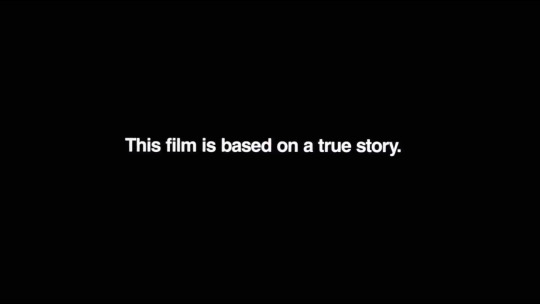
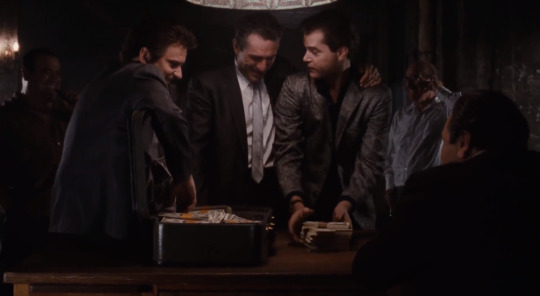

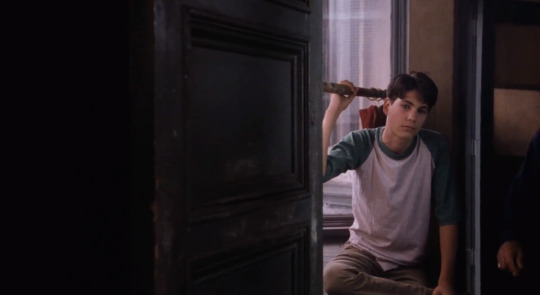
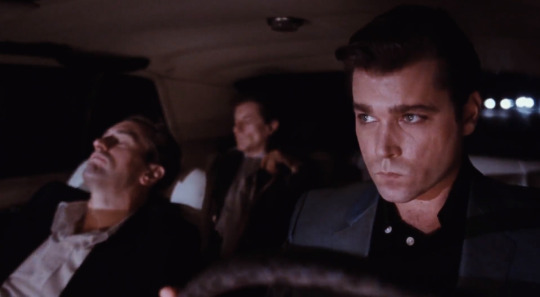
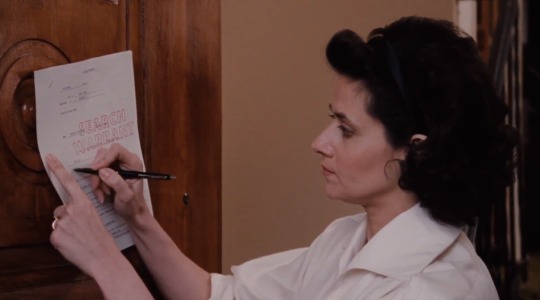

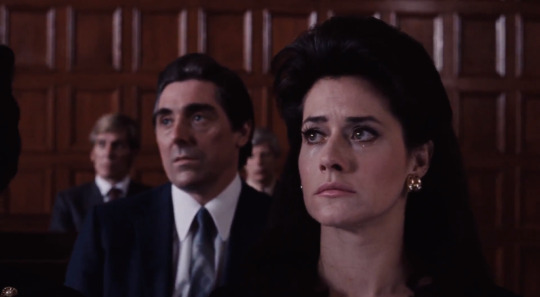
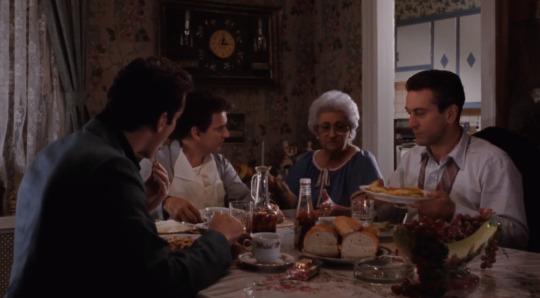
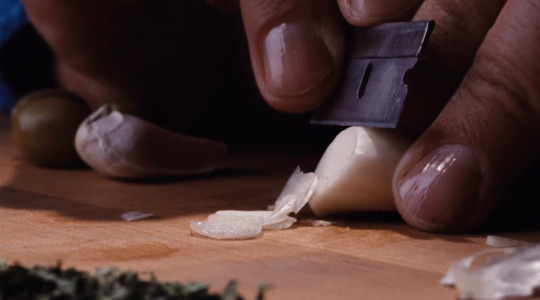
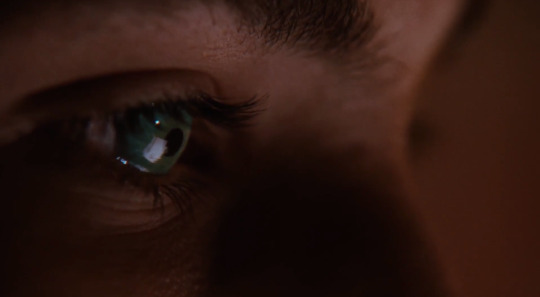
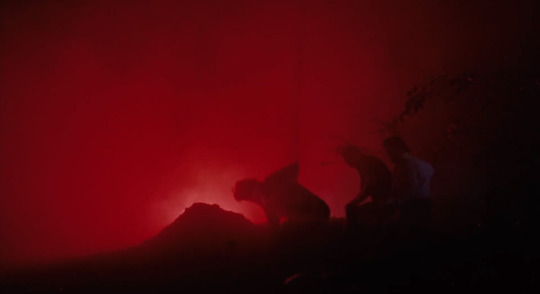
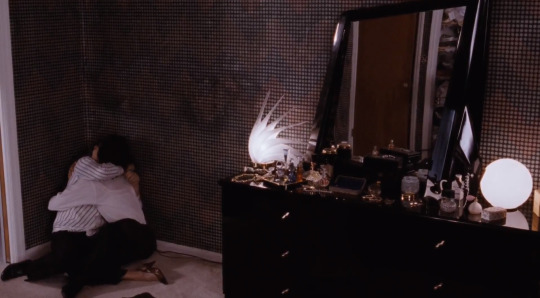
"You took your first pinch like a man and you learn two great things in your life. Look at me, never rat on your friends and always keep your mouth shut."
GoodFellas (1990) dir. Martin Scorsese
#goodfellas#:)#martin scorsese#ray liotta#robert de niro#joe pesci#lorraine bracco#paul sorvino#favourites#bits
72 notes
·
View notes
Text
"Not everyone is capable of defying the law, the darkness and the souls of the dead." - Liminality in 'La Chimera'
"You can soil your clothes and act the crook as much as you want, but you'll never change from what you are." In La Chimera we follow the exploits of a group of tombaroli, grave-robbers who plunder the Etruscan tombs around their small town. At the head of the tombaroli is Arthur, an archaeologist turned grave-robber who is relied upon by his amateur cohorts for his skills at dowsing, an intrinsic gift at locating items under the ground, "…the gift of finding lost things." Their covert activity - and through it, their constant interaction with both the physical earth and the spiritual afterlife - is only one way in which La Chimera teeters between life and death. Arthur, more than any of his friends, has a connection to the dead whose graves they plunder: on a practical, knowledgable level as an archaeologist and on a personal, spiritual level as someone who has recently lost somebody important to them, his girlfriend Beniamina. From the moment we meet him Arthur is in a state of half-life, a ghost in his white suit, with one foot in the real world and the other, often literally, in the grave.
"So, it's you." The film opens with Arthur dreaming of Beniamina, her face is the first thing we see and in his dream of her she wanders around an old building site, sometimes looking at Arthur and sometimes waiting for him to come to her. In this first dream, Beniamina is lit brightly by the sun; dreaming of her, Arthur's face is dappled in both shadow and sunlight until the shadow eventually overcomes and he wakes up on the train. This battle between light and shadow over Arthur is a constant throughout the film and the most heavily symbolic way in which his struggle between life and death is depicted. Wherever Beniamina is she is bathed in sunlight - not warm but harsh and bright - while Arthur's return to the real world is shrouded in dark nights, dull days and black tombs. The few times sunlight does reach Arthur are times in which he is dreaming or thinking of Beniamina, when he is closest to her. When he gets off the train at the beginning of the film, before he is spotted by Pirro, Arthur is in sunlight while everyone else is in shadow; the same happens again as Arthur decides if he's going to get into Pirro's car - Pirro is in the darkness of the car, while Arthur makes his decision out in the sunlight. In his most important introspective moment, Arthur, after separating himself from Spartaco and the tombaroli, cradles the head of the statue that looks like Beniamina while the sun shines over him.

"…he doesn't look at girls anymore, he only thinks of the one who's gone." Despite being able to see Beniamina so clearly in his mind, Arthur does not know where she is. There are moments throughout the film in which Arthur recognises something in the real world that relates back to Beniamina's location. He identifies yellow flowers outside of his shack that are the same as the ones in his dreams and when he, Flora and Italia visit the old train station, Arthur wanders around inside the dark, dusty insides while outside he listens to Flora speak of her daughter, perhaps imagining it as the same building that Beniamina is waiting for him in. At the end of the film, when Arthur helps a gang of rival graverobbers search a site, he appears first in a bunch of these yellow flowers and is shown coins that a homeless man has found on the site, "It's a golden sun!"; Arthur is too distracted in this scene to pick up on these hints and realise that he has finally found the place that Beniamina has been waiting for him in. When he eventually finds the spot the men are looking for, he is captured in a puddle in the hangman position foreshadowing his end. Through these symbols - the sun, the flowers, the building - there is a sort of mini-investigation occuring in the background of La Chimera; though Arthur never blatantly states that he is looking for Beniamina, he is too far gone in his grief to fully return to the real world. Even though he returns to the tombaroli for a time, he speaks of paying debts and the very act of jumping in graves may just be another way for him to seek out Beniamina. Their discovery of the goddess statue, whose face resembles Beniamina's, flattens Arthur, who, in finding her in this life, has come to the end of his search and found only a statue, "You're not made for human eyes."


The battle between sun and shadow is not the only indication of Arthur's liminality; thoughout the film, the camera flips Arthur upside down, associating him with the Hangman, and his dowsing implies a spiritual connection to the dead. After dumping the head of the statue, Arthur is confronted with the same people he met on the train at the beginning of the film, who question him about items they've been missing, "I wanted to ask you. You don't know what happened to my goods?" Whether or not they were real when he first met them - the old-fashioned train and a comment about a "strange ticket" would suggest not - Arthur imagines these locals as the ones whose graves he and the tombaroli have been robbing. They ask him if he's seen their grave-goods, the items Arthur has been stealing and selling, confronting him with the implications of his actions. Arthur isn't suddenly overcome with morality, but these spirits are no different to Beniamina, whose soul he managed to preserve by tossing her likeness into the ocean where it can't be exploited by the living.
Another indication of Arthur's struggle between life and death is his clothing. Arthur is introduced to us in a white linen suit, that grows more yellowed and crumpled the more time he spends in the real world. Like the sunlight that shines over him in important moments, Arthur wears his white suit at times when his connection to Beniamina and his struggle to remain in the real world are strongest. In early scenes, when Arthur is still making his anger with the tombaroli clear, he stubbornly remains in his white suit and even passes on the colourful pair of socks he received on the train to Flora. As he is slowly coaxed back into the real world Arthur adopts different items of clothing - often in brown, earthy colours and heavy materials, like the earth he is plundering/tied to. During the parade he wears a heavy brown coat over his linen suit but the next day, when he dowses for the tombaroli, he is wearing a tan jacket and trousers and a red jumper, his first step back into the world of the living. Arthur doesn't abandon his white suit completely, he wears it again the night they find the untouched tomb and statue. In this scene, it seems as if he is going to embrace life again until he feels a pull towards the tomb. The next time he wears it is when he throws the head of the statue into the ocean, choosing Beniamina and the afterlife over the tombaroli's personal gain. After abandoning the tombaroli, we watch Arthur wandering around aimlessly, his suit once again stained and crumpled, marking him as the lost soul wandering the earth that he is. However much he tries, Arthur is never able to fully invest in the world of the living. Even when he is wearing the clothes that would suggest otherwise, they are clothes that belonged to Flora's now dead husband and one of her superstitious daughters points out that, "He can't wear the clothes of a dead man!" But Arthur, in his grief for Beniamina, is as good as dead and the clothes do not bother him.

Arthur is not the only one who wears his relationship to life and death in his clothing. Flora believes, stubbornly, that Beniamina is merely missing and refuses to leave her crumbling home in case she suddenly returns. Flora wears black throughout the film, not in grief or mourning, but in stasis. Like Arthur's dark browns tying him to the real world, Flora's dark clothes indicate her connection to life, or, rather, the firm grip she is holding on to the idea of Beniamina still being alive life. Flora herself does not live - in the full sense of the word - but is unwilling to let go of it. Arthur, in his white suit, holds a similar stubborn mindset, except that he has accepted the knowledge that Beniamina is dead and his soul is in that world rather than the living one.

Compared to these two, Italia is a character who is fully alive and who comes closest to bringing Arthur back to the world of the living. Italia is always wearing bright and clashing colours and patterns and is constantly looking for a way for herself and her children to live freely. When they visit the train station together, Flora speaks of Beniamina, Arthur sees it as another tomb, while Italia sees its potential as a new home. When her daughther, Colombina, finds Arthur, she insists that he clean himself up and change out of his white suit before meeting Italia again. To see her, Arthur must cast off his ghost suit and wear his living clothes again - his brown jacket and trousers and a pink t-shirt, a more subdued version of Italia's clashing style. In this manner, Arthur tries, one last time, to embrace the world of the living - the vibrant community that Italia has developed in the train station - but can't let himself be part of it, there is too much life there. Always Arthur enjoys watching these communities and moments of life - the train station community, the village parade, the party, Italia and the men dancing, the group of singers - but always he hovers on the edge of it.

"Friends, we'll sing you a song that ends badly for those involved…" When this tunnel collapses in on Arthur he finds a red thread hanging from the ceiling which he tugs on, breaking through to the other side. This thread appeared before on Beniamina's side, a thread from her dress that got stuck in the ground. She tries to pull it out herself but it won't come; the string keeps Beniamina tied to the physical world as much as Arthur's attachment to her keeps him tied to the afterlife. The sadness of Arthur's death is off-set by his reunion with Beniamina, the one thing we know he has wanted since the beginning of the film. When Arthur tugs on that string in the dark tunnel, it reveals a pinprick of light, and when he breaks through the surface and finds Beniamina, his suit is whiter and cleaner than it was the first time we met him.

#la chimera#alice rohrwacher#josh o'connor#carol duarte#isabella rossellini#essays#film analysis#movie analysis
3 notes
·
View notes
Text







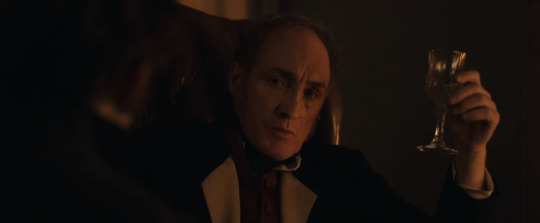


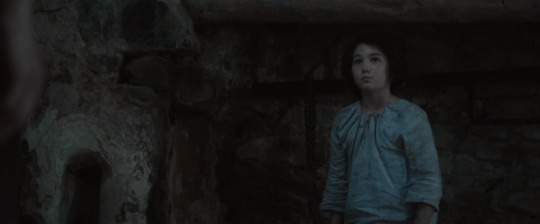


"Cén fáth a tharla sé seo dúinn?"
"Níor tharla sé seo dúinn...deineadh é seo orainn."
Arracht (2019) stiúir. le Tomás Ó Súilleabháin
#ceann beag i gcomhair seachtain na gaeilge#arracht#tomás ó súilleabháin#dónall o héalaí#saise quinn#dara devaney#michael mcelhatton#irish films#scannáin as gaeilge#scannán den scoth más cuma libh#gaeilge#bits#(níór bhfuair mé an sliocht iomlán mar bhí a chanúint ró-shaibhir do mo chluais bhig ach tuigeann sibh)
8 notes
·
View notes
Text










You're one of us now. A life for a life.
Dune: Part One (2021) dir. Denis Villeneuve
1K notes
·
View notes
Text










Tampopo (1985) dir. Jûzô Itami // Mad Max: Fury Road (2015) dir. George Miller
3 notes
·
View notes